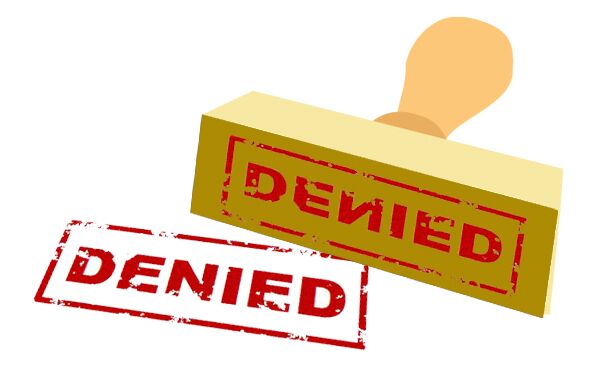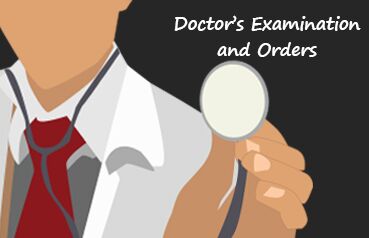For most people, applying to obtain Social Security Disability (SSD) benefits is a daunting process. The sheer volume of data requested to complete a claim application means there are plenty of chances to make a mistake that results in denial.

The Social Security Administration (SSA) says more than half of all SSD claims are initially denied after they are first submitted. About a third are rejected for reasons unrelated to the applicant’s medical condition. Sometimes, the denial is legitimate. Not all people who have disabling injuries qualify for SSD.
First, make sure you qualify for SSD. It is an insurance program for people who are unable to work for a living. It provides monthly checks based on the recipient’s work history. You must meet the SSA’s strict definition of disability and you must have a work history in which you have earned enough work credits to receive payments.

- Disability: To be judged disabled you must document the fact that you suffer from a medically determinable physical or mental impairment that prevents you from working for a living for at least 12 months, or that is expected to result in your death. The SSA provides a Listing of Impairments, which your diagnosis may match. Otherwise, you must show that your condition is of equal severity to a medical condition that is listed.
 Work history: When you work and pay Social Security taxes, you earn up to a maximum of four “credits” for each year. Generally, you need 40 work credits to qualify for SSD benefits, 20 of which must have been earned in the most recent 10 years, including the year you became disabled. If you are not yet 31 years old, you may qualify with fewer credits.
Work history: When you work and pay Social Security taxes, you earn up to a maximum of four “credits” for each year. Generally, you need 40 work credits to qualify for SSD benefits, 20 of which must have been earned in the most recent 10 years, including the year you became disabled. If you are not yet 31 years old, you may qualify with fewer credits.
There are also income requirements you must meet, and your disability must not be the result of alcohol or drug addiction alone. You may qualify for an expedited review of your application under the SSA’s Compassionate Allowances (CAL) program if yours is among about 200 rare medical conditions that automatically make applicants eligible for disability benefits.
Get organized to gather the documents that your claim requires. The amount of information required of a SSD claim application can be overwhelming. You will need to sit down and take some time to determine how you will gather the information required to document your personal and employment history, and your medical diagnosis, plus all treatment you have received.

- Personal information: You must provide names, birth dates and Social Security numbers for you and your immediate family members, as well as any former spouses. You may also need the dates and places of your marriage(s) and dates of any divorces.
- Employment: A claim requires information about up to five jobs you have held in the 15 years before your disability, including dates of employment for each. For the current and prior year, you must provide the name and address of your employer(s) and how much money you earned. You also need to provide a copy of your Social Security Statement. You have to explain the status of any other occupational disability claims you have pending or that you anticipate, such as for workers’ compensation, federal employee retirement or pension, state or local government disability insurance benefits.
- Medical documentation: This includes records of all medical treatment you have received from any doctor, hospital or clinic, including the names, addresses and phone numbers of doctors’ offices, clinics, hospitals, surgery centers, and your patient ID numbers. You also have to list the tests you have had and who referred you for them as well as all prescribed medications and who prescribed them.
For everything you say to answer a question on one of the many forms you must complete, the SSA wants a copy of the document that proves it, from birth certificates to W-2 forms, pay stubs and more. Many of the nonmedical denials of SSD applications are due to missing, conflicting or unclear answers or lack of documentation. Remember that your medical information must convince the examiner that you have the disability you claim.
Third, work with the Social Security office once you have submitted your claim. As the SSA reviews your claim application, which occurs in a local office known as Disability Determination Services or DDS, the claims examiner may have questions. Answer them as promptly and as completely as possible. You should respond to all requests of the DDS office. You also need to keep up with all appointments for medical treatment for your disability. If you have a strong disagreement or simply cannot comply, you should acknowledge the request and explain why you cannot do what is asked. You should consult a disability claims attorney if the DDS does not waive any request you feel is unreasonable.
 Consultative examination (CE): You may be asked to undergo an examination by a doctor the local DSS contracts with. They’ll pay for the exam and some transportation costs if necessary. Do not shrug this off. Make the appointment. Your claim is likely to be denied if you do not.
Consultative examination (CE): You may be asked to undergo an examination by a doctor the local DSS contracts with. They’ll pay for the exam and some transportation costs if necessary. Do not shrug this off. Make the appointment. Your claim is likely to be denied if you do not.- Doctors’ orders: It is important that you follow your doctors’ treatment plan, including taking all medications and continuing all physical, occupational, vocational and psychological therapy. If the DDS finds that you are not trying to get well or at least maintain a level of health that is possible for your condition, it could deny or terminate your benefit payments.
If you have legitimate reasons for not complying with requirements made by doctors or the SSA, you need to notify the DDS of this in writing. For example, certain psychological conditions or religious beliefs may interfere with taking medications or undergoing recommended medical procedures. But you’ll need to make a record of your objection every time it applies. Do not assume that the SSA will remember or rely on a statement you made previously.
Fourth, hire an experienced Social Security Disability attorney to make the whole SSD claim process easier on you. Most SSD applicants look for legal help once their benefits have been denied a first or second time. But a SSD claims attorney from Hardison & Cochran can assist you from the start to make sure your application is accurate and complete, and makes a thoroughly supported case for your claim. If necessary, we will represent you on appeal and can help you obtain additional medical exams by physicians we work with who also understand the SSD program and its documentation requirements. Be sure not to be inconsistent in your SSD claim.

- Approved legal fees: The SSA regulates fees that may be charged to a Social Security Disability applicant for representation during the appeal of a claims decision. An attorney must file a fee agreement or a fee petition with the SSA. In most cases, the SSA will approve payments of no more than 25 percent of past-due benefits or $6,000, whichever is less. A SSD attorney can also charge for out-of-pocket expenses, such as for the costs of medical reports, without the SSA’s approval.
- No award, no fee: Hardison & Cochran attorneys work on a contingency-fee basis. If we do not obtain a settlement for you, you will not owe us a legal fee. We will start by reviewing your application file, or any documentation you have, and providing our recommendations at no charge and with no strings attached.
Don’t risk a delay or denial of the disability benefits you need and have earned. Contact Hardison & Cochran today from the Raleigh-Durham Research Triangle area or anywhere in North Carolina. You can also know how Illegal Drugs, Alcohol and/ or Tobacco Use Can Ruin Your Social Security Disability Claim.





Leave a comment